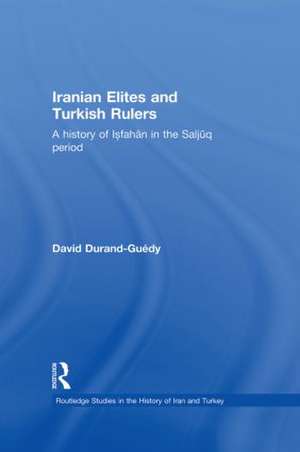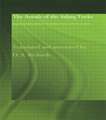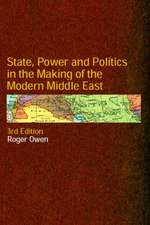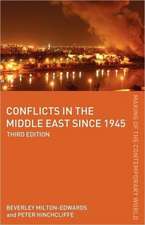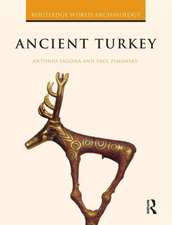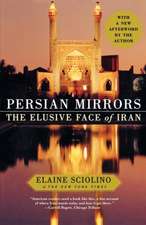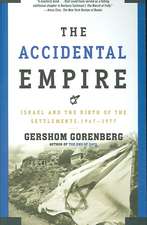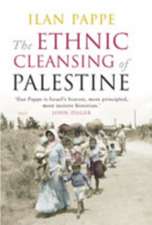Iranian Elites and Turkish Rulers: A History of Isfahan in the Saljuq Period: Routledge Studies in the History of Iran and Turkey
Autor David Durand-Guedyen Limba Engleză Paperback – 28 mar 2013
Drawing on an analysis of a wide range of sources, including poetic and epistolary material, this study fills an historiographical gap and casts new light on the two centuries prior to the Mongol invasion. This comprehensive analytical study provides a new contribution to the understanding of many crucial issues: the cultural divide between Western and Eastern Iran; the military potential of city-dwellers; the attitude of the Turkish rulers toward cities and city life; the action of the famous vizier Nizam al-Mulk; the meaning of the Ismaili uprising; and above all the structure of the local elite, organized into rival networks and largely autonomous vis-à-vis state powers.
The study is enhanced by a variety of additional features, including extensive genealogical tables, Arabic script and maps. Providing a new understanding of the cultural identity of Iran, this book is an important contribution to the study of the history of Iran and the Medieval period.
| Toate formatele și edițiile | Preț | Express |
|---|---|---|
| Paperback (1) | 497.58 lei 6-8 săpt. | |
| Taylor & Francis – 28 mar 2013 | 497.58 lei 6-8 săpt. | |
| Hardback (1) | 1176.44 lei 6-8 săpt. | |
| Taylor & Francis – 17 dec 2009 | 1176.44 lei 6-8 săpt. |
Preț: 497.58 lei
Nou
Puncte Express: 746
Preț estimativ în valută:
95.21€ • 99.77$ • 78.71£
95.21€ • 99.77$ • 78.71£
Carte tipărită la comandă
Livrare economică 12-26 aprilie
Preluare comenzi: 021 569.72.76
Specificații
ISBN-13: 9780415852319
ISBN-10: 0415852315
Pagini: 464
Ilustrații: 26 tables and 6 line drawings
Dimensiuni: 156 x 234 x 24 mm
Greutate: 0.65 kg
Ediția:1
Editura: Taylor & Francis
Colecția Routledge
Seria Routledge Studies in the History of Iran and Turkey
Locul publicării:Oxford, United Kingdom
ISBN-10: 0415852315
Pagini: 464
Ilustrații: 26 tables and 6 line drawings
Dimensiuni: 156 x 234 x 24 mm
Greutate: 0.65 kg
Ediția:1
Editura: Taylor & Francis
Colecția Routledge
Seria Routledge Studies in the History of Iran and Turkey
Locul publicării:Oxford, United Kingdom
Public țintă
PostgraduateCuprins
Introduction Part 1: The Disputed Capital 1. Identity 2. Conquest 3. Capital Part 2: The Reshaping of a Local Society 4. Domination 5. Reactions 6. Civil War 7. Consolidation Part 3: Turkish Emirs and Iranian Elites face to face 8. A New Context 9. The Power of the Notables 10. The Era of the Khujandis 11. The Era of the Saids. Conclusion: The Conditions and Nature of Political Action in the Context of Turkish Domination. Appendices
Notă biografică
David Durand-Guédy is currently a visiting fellow at the University of Tokyo. Trained in France (ENS LSH, Sorbonne, Langues’O), he has made numerous stays in the Middle-East, especially Iran. He has published several articles in French and English on the history of pre-Mongol Iran.
Recenzii
"No other study of Seljuq Iran has ever attempted such a complex interweaving of imperial and local politics. Nor have previous efforts to analyze the factional rivalries that characterized Iranian urban life in the eleventh and twelfth centuries combined such detail about family and patronage structures with an equally detailed narrative of the relationship between these factions and the vagaries of dynastic politics... historians of Iran should embrace the complexity that the sources offer for their perusal. The eleventh and twelfth centuries were a period of pivotal change and crucial institutional development in the history of Islam, and Iran played a central role in this. Rather than looking for a tidy but unrealistic political narrative that might bridge the chaotic centuries between the waning of Abbasid power and the coming of the Mongols, historians should take Durand-Guédy’s study as a guide to exploring the actual complexity of the era, and as a goad to doing so." - Richard Bulliet, Columbia University; Iranian Studies, 44:4, 590-592
"This work is a comprehensive account and impressive analysis of an era within a city which incorporates those invaluable extras, often abandoned or discarded before the final submission, namely copious appendices and author's notes, a chronology, a list of major players, a bibliography of original source-texts, a chapter-by-chapter synopsis, all of which warrant the appreciation of his research readers and are tools to aid deeper and fuller exploration of an area now very much on the academic map... This book is destined to become a classic and an indispensible tome for the study of pre-Mongol Iran... It can only be hoped that this very impressive and inspiring work by David Durand-Guery will provide the incentive and motivation for further scholarly endeavour." - George Lane, School of Oriental and African Studies, University of London, JRAS, Series 3 - Volume 20/4 - 2010
"Durand-Guédy’s book reflects several significant trends in recent research on early Islamic History. One is the emphasis on regional and urban history, which gives us a much more nuanced and credible understanding of the dynamic, interactive, and pragmatic political life of the period than older world written from an "imperial" point of view. Moreover, recent scholars tend to take the broadest possible approach to source material, and Durand-Guédy likewise makes good use not just of the standard corpus of historical text but also an array of chronicles, narrative histories, geographies, biographical dictionaries, poetry, and documents… for specialists it will be a welcome and highly informative addition to the scholarly literature." – Elton L. Daniel, University of Hawai’i Mānoa (The American Historical Review, April 2011)
"[T]here is no doubt as to the value and importance of this work. It is a major contribution to our understanding of the neglected Saljuq period and the mediaeval history of Iran more generally and sheds fresh light on many neglected or misunderstood issues while handling an impressive array of sources with dexterity. Every library collection encompassing the premodern Middle East should certainly acquire a copy." - A. C. S. Peacock, British Institute at Ankara; International Journal of Asian Studies, 8(1) (2011): 114-6
"This work is a comprehensive account and impressive analysis of an era within a city which incorporates those invaluable extras, often abandoned or discarded before the final submission, namely copious appendices and author's notes, a chronology, a list of major players, a bibliography of original source-texts, a chapter-by-chapter synopsis, all of which warrant the appreciation of his research readers and are tools to aid deeper and fuller exploration of an area now very much on the academic map... This book is destined to become a classic and an indispensible tome for the study of pre-Mongol Iran... It can only be hoped that this very impressive and inspiring work by David Durand-Guery will provide the incentive and motivation for further scholarly endeavour." - George Lane, School of Oriental and African Studies, University of London, JRAS, Series 3 - Volume 20/4 - 2010
"Durand-Guédy’s book reflects several significant trends in recent research on early Islamic History. One is the emphasis on regional and urban history, which gives us a much more nuanced and credible understanding of the dynamic, interactive, and pragmatic political life of the period than older world written from an "imperial" point of view. Moreover, recent scholars tend to take the broadest possible approach to source material, and Durand-Guédy likewise makes good use not just of the standard corpus of historical text but also an array of chronicles, narrative histories, geographies, biographical dictionaries, poetry, and documents… for specialists it will be a welcome and highly informative addition to the scholarly literature." – Elton L. Daniel, University of Hawai’i Mānoa (The American Historical Review, April 2011)
"[T]here is no doubt as to the value and importance of this work. It is a major contribution to our understanding of the neglected Saljuq period and the mediaeval history of Iran more generally and sheds fresh light on many neglected or misunderstood issues while handling an impressive array of sources with dexterity. Every library collection encompassing the premodern Middle East should certainly acquire a copy." - A. C. S. Peacock, British Institute at Ankara; International Journal of Asian Studies, 8(1) (2011): 114-6
Descriere
This book covers the history of Iran in the eleventh and twelfth century under the rule of the Saljuqid Turks. It is particularly concerned with the city of Isfahan and the interaction of the Iranian élites and Turkish rulers.
